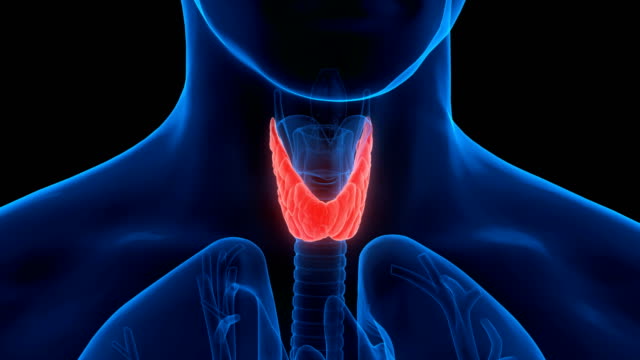There is significantly low awareness regarding endocrine disorders. Did you know? Disorders related to the endocrine system occur when hormone production is disrupted, leading to a variety of symptoms and impacting various aspects of health, such as growth, metabolism, sexual function, and mood. These disorders can stem from factors like tumors, genetic issues, or imbalances in hormone levels. One common type is hypothyroidism, where the thyroid gland fails to produce enough hormones, leading to symptoms such as fatigue, weight gain, and depression. Another is diabetes, characterized by the body's inability to regulate blood sugar levels effectively. This condition requires constant monitoring and management to avoid complications such as heart disease and nerve damage. Polycystic ovary syndrome (PCOS) affects many women of reproductive age and can lead to menstrual irregularities, infertility, and hormonal imbalances. Cushing's syndrome happens from an overabundance of the hormone cortisol, which plays a crucial role in the body's ability to handle stress and manage metabolic functions. It's important to recognize that endocrine disorders are not solely physical and they can also take a toll on mental health due to their impact on hormone regulation.
The causes of endocrine disorders: Cushing's syndrome often arises from tumors in the adrenal or pituitary glands, which are typically benign but necessitate removal for effective management. Endocrine disorders can be caused by a variety of factors, including genetics, environmental influences, and lifestyle choices. Genetic mutations or abnormalities can lead to the development of endocrine disorders such as diabetes, thyroid disorders, or adrenal gland dysfunction. Exposure to certain environmental toxins or chemicals can disrupt the normal functioning of endocrine glands, leading to hormonal imbalances and potential disorder development. Lifestyle factors such as poor nutrition, excessive stress, and lack of physical activity can contribute to the onset of endocrine disorders. Poor dietary choices that result in obesity or nutrient deficiencies can impact hormone regulation and increase the risk of developing conditions like polycystic ovary syndrome (PCOS) or insulin resistance.
The diagnosis: A doctor may employ urine tests, imaging scans such as MRI scans, genetic tests, hormone tests, and blood tests to diagnose an endocrine disorder. A timely diagnosis of endocrine disorders is fundamental in preventing potentially serious health consequences. Endocrine disorders, such as diabetes and thyroid dysfunction, can have a profound impact on various bodily functions if left untreated. A delay in diagnosis could lead to complications like nerve damage, cardiovascular issues, or even organ failure. Identifying these disorders early can significantly improve the effectiveness of treatment and management strategies. For diabetes, beyond the standard blood glucose test, newer diagnostic tools like continuous glucose monitoring (CGM) provide real-time data on glucose levels throughout the day. When it comes to PCOS, hormone testing plays a pivotal role in identifying imbalances that contribute to irregular periods and other symptoms. Measuring testosterone and luteinizing hormone (LH), and assessing cortisol levels can unveil potential stress-related hormonal disruptions often associated with PCOS. For thyroid disorders, the extensive investigation goes beyond TSH and includes evaluating free T3 and free T4 levels as well as thyroid antibody tests to distinguish between different types of thyroid conditions.
The treatment: Early detection allows experts to implement personalized treatment plans tailored to each individual's specific condition, ultimately enhancing the quality of life.

 Dr Rajesh Bendre, National Technical Head & Chief Pathologist Apollo Diagnostics, Kolkata In this article, we explain what endocrine disorders are, the causes, treatment, and tests.
Dr Rajesh Bendre, National Technical Head & Chief Pathologist Apollo Diagnostics, Kolkata In this article, we explain what endocrine disorders are, the causes, treatment, and tests.










.jpeg)

















.jpg)


